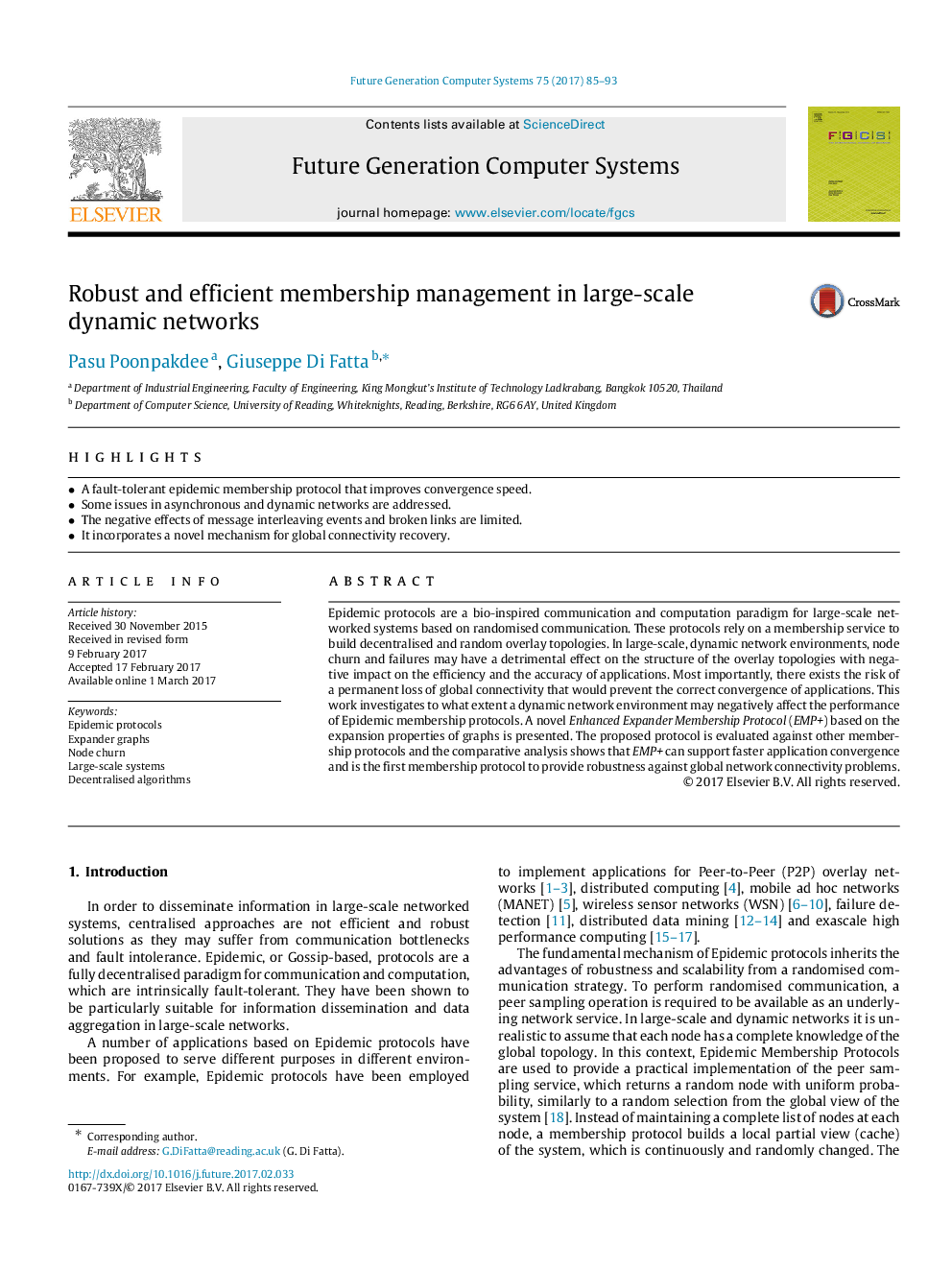| Article ID | Journal | Published Year | Pages | File Type |
|---|---|---|---|---|
| 4950404 | Future Generation Computer Systems | 2017 | 9 Pages |
â¢A fault-tolerant epidemic membership protocol that improves convergence speed.â¢Some issues in asynchronous and dynamic networks are addressed.â¢The negative effects of message interleaving events and broken links are limited.â¢It incorporates a novel mechanism for global connectivity recovery.
Epidemic protocols are a bio-inspired communication and computation paradigm for large-scale networked systems based on randomised communication. These protocols rely on a membership service to build decentralised and random overlay topologies. In large-scale, dynamic network environments, node churn and failures may have a detrimental effect on the structure of the overlay topologies with negative impact on the efficiency and the accuracy of applications. Most importantly, there exists the risk of a permanent loss of global connectivity that would prevent the correct convergence of applications. This work investigates to what extent a dynamic network environment may negatively affect the performance of Epidemic membership protocols. A novel Enhanced Expander Membership Protocol (EMP+) based on the expansion properties of graphs is presented. The proposed protocol is evaluated against other membership protocols and the comparative analysis shows that EMP+ can support faster application convergence and is the first membership protocol to provide robustness against global network connectivity problems.
